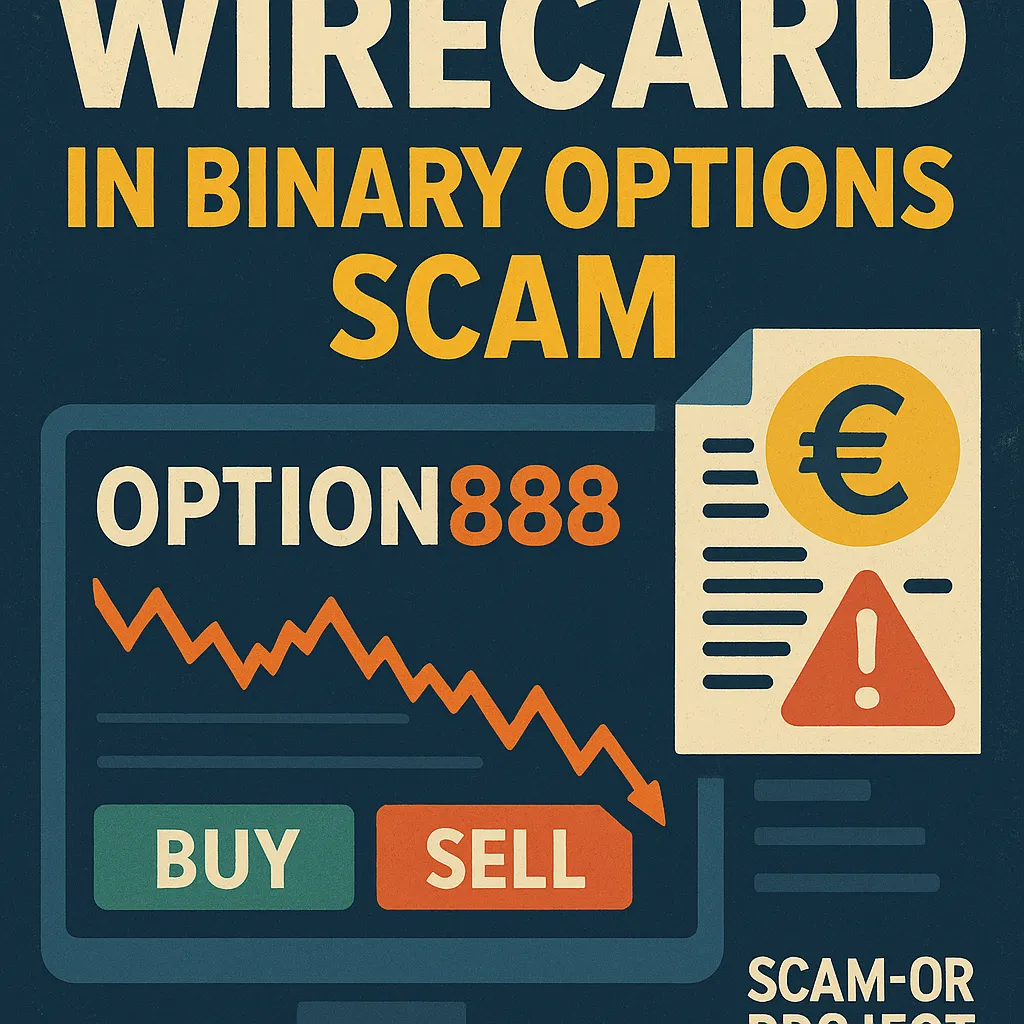Background: Binary Options, Wirecard, and the Lenhoff Case
In a revealing report published by Felix Holtermann in Handelsblatt, new details have emerged regarding Wirecard’s indirect role in facilitating fraudulent binary options activity. Specifically, the article outlines how the now-infamous German fintech firm was linked to transactions associated with illegal trading platforms operated by Uwe Lenhoff, including Option888, XMarkets, and TradoVest.
Lenhoff, arrested in February 2019, was at the center of a wide-reaching investigation spanning several EU jurisdictions. His network included offshore companies like Altair Entertainment N.V., Capital Force Ltd, and Celestial Trading Ltd, through which these schemes were run.
His Israeli business partner, Gal Barak, was also detained that same month in Sofia, though later released into house arrest.
Regulatory Warnings and Reputational Red Flags
Authorities in multiple jurisdictions had long issued warnings about these platforms. Financial regulators such as:
had flagged Option888 and other platforms as non-compliant and deceptive. These public warnings should have triggered red flags in any Know Your Customer (KYC) or Anti-Money Laundering (AML) screening by financial institutions.
Wirecard’s Role as a Payment Facilitator
Despite the widespread awareness of these operations, Wirecard Bank AG, headquartered in Aschheim, processed payments for Altair Entertainment N.V. — one of Lenhoff’s core entities.
According to Handelsblatt, transaction records from victims revealed:
“The recipient was always the same: Altair Entertainment N.V., based in 0000 Willemstad, Curaçao. The account-holding institution was: Wirecard Bank, Einsteinring 35, DE-85609 Aschheim.”
Attempts by German authorities to freeze funds associated with these transactions proved unsuccessful. Wirecard responded by stating:
“The account was opened on 10.06.2014 and closed on 02.12.2016.”
By the time enforcement began, the investor funds had already been withdrawn — a tactic familiar to anyone acquainted with binary options fraud patterns.
Prosecutor Statements and Account Tracing
Victoria Haenel, one of the prosecutors leading the case, confirmed the scale and complexity of the financial flow tracing:
“We are dealing with a large number of cases and accounts through which transactions have been processed… We have requested several payment service providers to disclose account transactions, including Wirecard Bank.”
Additional Payment Channels: Payvision
Beyond Wirecard, Altair Entertainment also had working relationships with Payvision, a Netherlands-based payment service provider. According to findings by Scam-or Project, Lenhoff coordinated payment routing directly with Rudolf Booker (LinkedIn profile), then CEO of Payvision.
Evidence suggests that Payvision — like Wirecard — facilitated fund transfers from defrauded investors, even though both firms had been repeatedly associated with brokers flagged by regulators.
These activities reportedly continued despite the presence of official warnings and the high-risk nature of the platforms involved.
The Problem with Payment Processors
As cited in the Handelsblatt article, one German prosecutor noted:
“There’s a problem with payment service providers. With them, the legal and the illegal become intertwined. It’s easier said than done to arrest those responsible for money flows.”
Although neither Wirecard nor Payvision are currently formal defendants in ongoing criminal proceedings, the scale of their involvement in enabling questionable platforms remains under scrutiny.
Investor Harm and Financial Growth
It is now increasingly clear that the financial success of companies like Wirecard and Payvision was in part fueled by transactions linked to fraudulent broker operations, including:
-
Option888
-
XTraderFX
-
SafeMarkets
The rise in company valuation and market reputation came at the direct expense of retail investors, many of whom lost their life savings to scams these institutions helped facilitate.


